
Newsletter - Publication 116
1st Dec 2021
|
|
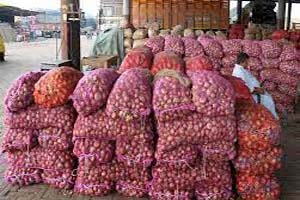
Onions from Pakistan to enter Chinese market
China and Pakistan have inked an agreement that would open the Chinese market for Pakistani onion, marking the first deal since the two neighbors embarked on the second development phase of the China-Pakistan Economic Corridor (CPEC) that focuses on cooperation in industrial and agricultural sectors. The agreement will facilitate the access of onion products from Pakistan in the Chinese market, and the cooperation will further help Pakistan to improve the domestic production capacity of onions. The construction of the CPEC has entered a new stage of high-quality development, focusing on industrial and agricultural cooperation with strong bilateral complementarity in agricultural trade, cold-chain storage and other fields. The agreement is the first on agricultural exports signed between the two countries in the second phase of the China-Pakistan Economic Corridor (CPEC), and it marks the beginning of market access for Pakistani onions in China. Tariffs on some 75 percent of goods from both sides have been gradually reduced to zero since 2020, which has provided access to China for more high-quality agricultural products from Pakistan.
|
|
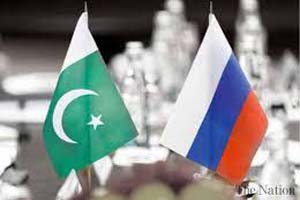
Pakistan, Russia to further enhance economic, trade ties
The Ural Chamber of Commerce and Industry and the Federation of Pakistan Chamber of Commerce and Industry (FPCCI) have signed a memorandum of understanding (MoU), creating further economic and trade cooperation opportunities between the two countries. The agreement is seen as a new beginning in relations between Pakistan and the Ural region of the country. The two countries have significantly strengthened their political and economic relations over the past years despite the pandemic. The current intergovernmental negotiations on building the New Trade Corridor through the Pakistan-Central Asia-Russia is a clear sign of the new page in the strategic partnership between the two countries. The development comes days after Russia and Pakistan acknowledged each other’s efforts against international terrorism and resolved to continue talks on counter-terrorism financing and the spread of terrorist propaganda on the internet. In the meeting held on Monday, the two sides exchanged views on matters related to the global war on terror and extremism, besides the current challenges, as well as new threats to international and regional peace and security.
|
|
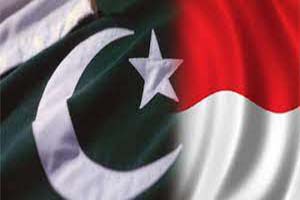
Indonesia to form joint ventures in Pakistan
Indonesia will launch joint ventures in collaboration with Pakistani investors to ensure trade balance between the two countries, said Indonesian Ambassador Adam M Tugio. Speaking at a seminar titled “Sustainable Vegetable Oils: Opportunities for Increased Healthy Food and Two-way Trade” on Friday, the envoy said that both countries had inked Preferential Trade Agreement (PTA) for the promotion of trade in agricultural commodities at reduced tariffs. “Indonesia imports kinnow and mangoes from Pakistan in exchange for palm oil and the volume of imports is being enhanced to ensure balance between imports and exports,” he said. The envoy revealed that the Indonesian government was helping Pakistan in the cultivation of palm seeds to curb its import bill substantially. In this regard, he asked the University of Agriculture, Faisalabad to play a proactive role and develop new varieties of palm seeds that could absorb the local environment and provide economically better yields.
|
|
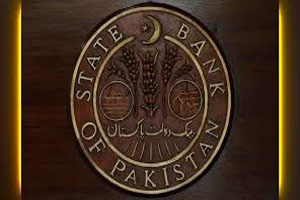
SBP sees 4-5pc GDP growth in FY22
The State Bank of Pakistan (SBP) has declared that addressing deep-rooted structural impediments is crucial for sustaining and improving the current growth momentum. “These impediments include consistent decline in the yield of important crops (especially cotton); insufficient export coverage of imports, low and declining productivity of labor, stagnant tax-to-GDP ratio, anemic investment-to-GDP ratio, and the rising fiscal burden of the power sector,” stated the SBP in its annual report, which was issued on 24th November. The SBP in its report “The State of Pakistan Economy”, projected the GDP growth in the range of four to five per cent for the financial year 2022. It said the economic recovery during the last fiscal year is projected to gain further momentum in FY22. “This is evident in the significant increase in machinery and raw material imports, continued expansion in consumer financing, and strong uptrend in domestic sales as seen from high frequency demand indicators during the initial months of FY22,” the report said.
|
|
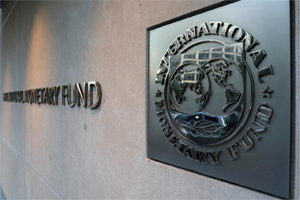
International Monetary Fund rejects Pakistan's borrowing request
International Monetary Fund turned down the Pakistan government's proposal to allow it to take loans equal to 2 per cent of the gross domestic product (GDP) in a fiscal year. The IMF did not agree despite the government's opinion that it was its constitutional right to take loans to finance its operations. According to recent legislation "The bank shall not extend any direct credit to or guarantee any obligations of the government, or any government-owned entity or any other public entity”. Further that the bank shall not purchase securities issued by the government or any government-owned entity or any other public entity in the primary market. The bank may purchase such securities in the secondary market. The ban on borrowing from the central bank has left the government at the mercy of commercial banks that have in recent weeks demanded an interest rate that is significantly higher than the key policy rate.
|
|
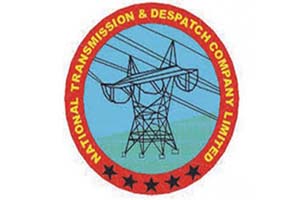
NTDC begins work on 113km transmission line
The National Transmission and Despatch Company (NTDC) has started construction of 113km 500kV double-circuit quad bundle transmission line from Nokkhar grid station Gujranwala to Lahore North Grid Station, which will subsequently be connected to the HVDC Converter Station. The project will facilitate the dispersal of power from 660kV bipolar convertor station Lahore by connecting two 500kV circuits of HVAC transmission lines with the national grid. The project will also help in dispersal of 969MW Neelum-Jhelum Hydro Power Project with the national grid, transmission line project will be completed with the cost of Rs8,305 million.
|
|
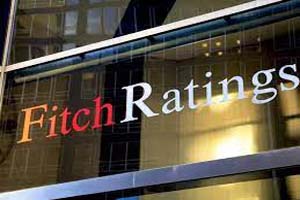
Reforms offset Pakistan’s surging external risks, says Fitch Ratings
Fitch Ratings says that Pakistan’s recent policy adjustments and demonstrated access to external financing, as well as its commitment to a market-determined exchange rate, offset rising external risks from a widening current account deficit. Referring to the staff-level agreement reached between Pakistan and the International Monetary Fund (IMF) on Nov 21 on the sixth review of Extended Fund Facility (EFF), Fitch believes the reforms include amending the State Bank of Pakistan Act to formalise the central bank’s institutional independence and removing some tax exemptions. It expects that the IMF will release a further $1 billion in funding, provided certain prior actions are met. The authorities sustained reform efforts and commitment to the IMF programme should support access to external financing, even with global financing conditions potentially becoming more challenging for emerging markets in 2022 as global monetary policy settings grow less accommodative.
|
|
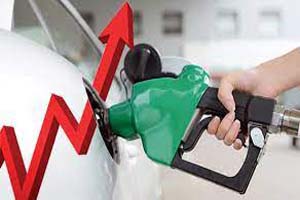
Petroleum levy to go up Rs4.95 per month
The International Monetary Fund (IMF) and Pakistan reached a staff-level agreement on policies and reforms needed to complete the sixth review under the $6 billion Extended Fund Facility (EFF) which has been 'in recess' since April. Following an agreement, federal government announced that the petroleum development levy (PDL) will increase Rs4.95 every month. The tariff will be increased by Rs 4.95 while the petroleum development levy has to be increased up to Rs 30. Minister for Energy also hinted at increasing the power tariff in the coming months. The minister further said perhaps, we will have to increase electricity tariff in next few months. He expressed the hope that there will be more economic stability after this program.
|
|
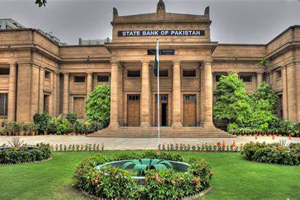
SBP accuses banks of involvement in currency speculation
The State Bank expressed serious concerns over speculation by banks in the currency business, saying they were involved in the multibillion-rupee game. Banking sources said a high-level meeting, chaired by SBP Governor Dr Reza Baqir and attended by presidents of at least top ten banks, was held in the State Bank. The SBP governor expressed serious concern over the exchange rate destabilisation and held bank treasurers responsible for speculative practices. Banks denied the allegation but assured the governor of their full support to keep such activities in check in the future. A steep fall in the rupee’s value against the dollar has not only destabilised the exchange rate but it has also made it difficult for the central bank to handle the situation with its own free-float exchange rate mechanism.
|
|

Petroleum imports almost double in July-October
Pakistan’s oil and eatable import bill recorded a sharp increase in the first four months (July-October) of 2021-22 from a year ago owing to rising prices on the international market and massive depreciation of the rupee. The total import bill inched up by 65.4pc to $25.1 billion in 4MFY22 as against $15.17bn in the corresponding period of last year. The steady increase in import bill of these two sectors are triggering trade deficit and pose a threat to cause pressures on the external side of the government. As a result, unprecedented increase in prices was seen for domestic users. The oil import bill rose by over 95.58 per cent to $6.19 billion in 4MFY22 from $3.16bn over the corresponding period last year. The domestic users had to endure unprecedented increases in the prices of petroleum products. Data released by the Pakistan Bureau of Statistics showed that the import of petroleum products went up by 92pc in value and 9.66pc in quantity. Crude oil imports rose by 84.16pc in value and 0.82pc in quantity in 4MFY22 while those of liquefied natural gas increased by 132pc in value. Liquefied petroleum gas imports jumped by 34.5pc. The food import bill rose by over 37pc to $3.12bn in 4MFY22 from $2.28bn in 4MFY21 to bridge the gap in food production.
|
|
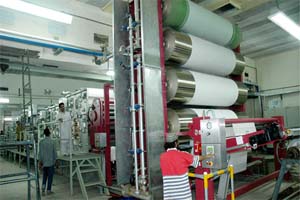
Textile exports up 26.55pc in 4MFY22
The exports of textile and clothing posted growth of 26.55 per cent in the first four months of this year to $6.02 billion compared to $4.75bn over the year, data released by the Pakistan Bureau of Statistics (PBS) showed. The growth momentum in textile and clothing export is steady on the back of rising demand from the global market as well as massive depreciation of the rupee as exports posted growth of over 24.24pc in October from a year ago. The Ministry of Commerce estimates that the easing of lockdown in North America and European countries — top markets for Pakistani textile goods — will help boost the exports. The demand for textiles collapsed during the first wave of the Covid-19 pandemic, but eventually recovered in the outgoing fiscal year. In the budget 2021-22, the government had drastically reduced duty and taxes on imports of several hundred raw materials to bring down the input cost of exportable products. Liquidity issues were also resolved to a large extent by timely releasing refunds as well as payment of cash subsidies. With a delay of more than two years, the government has recently announced the Strategic Trade Policy Framework for the non-textile sector. However, the textile and clothing sector specific policy is still awaited. The overall country’s exports posted a growth of over 24.94pc year-on-year to $9.46bn in July-Oct FY22 compared to $7.57bn in the corresponding period last year.
|
|
|

© 2021 Alpine Marine Services Private Limited
all rights reserved
|
|